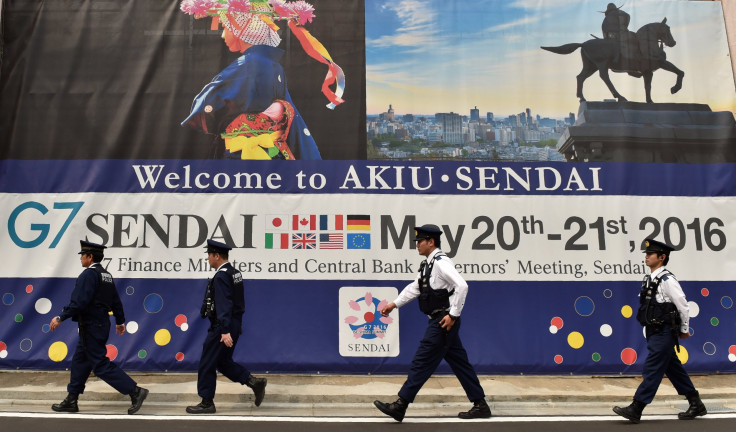G-7 Summit 2016: Finance Ministers Unable To Reach Consensus On Global Economic Growth

The G-7 finance ministers and central bank governors’ meeting being held in Sendai, Japan, Friday and Saturday has showcased a rift in the fiscal policies of the member nations. This meeting is one in a series of discussions in the runup to the G-7 Summit, being held in Ise-Shima, Japan, on May 26-27.
The summit next week is reportedly expected to yield a “go-your-own-way” response from the nations with regard to strategies pushing global economic growth. Printing money to address low inflation, critics say, pushes the limits of monetary policymaking but opinions are being increasingly split in the face of anemic growth rates within the G-7.
While the host Japan and the U.S. are calling for members to boost fiscal stimulus, Germany and Britain insist on fiscal austerity. According to Reuters, Japanese Prime Minister Shinzo Abe said Wednesday that deploying fiscal stimulus steps could help boost growth, especially when Japanese, U.S. and European central banks implement ultra-loose monetary policy.
German Finance Minister Wolfgang Schaeuble said Thursday: “There is high nervousness in financial markets." This could be fostered by huge government debt and excess liquidity around the globe, according to him.
However, G-7 officials have reportedly signaled that they would not object to the countries catering to their own individual situations.
According to Reuters, Bank of Japan Governor Haruhiko Kuroda told reporters Thursday, “ I expect there to be a frank exchange of views on how to achieve price stability and growth using monetary, fiscal and structural policies reflecting each country's needs.”
There are a number of other items on the agenda for the G-7. The reportedly high risk of a British vote to exit the European Union in a June referendum, or Brexit, is one of these. “A Brexit could, in the short-term, lead to turbulence in financial markets,” a G-7 source said, according to Reuters.
Another topic is the global glut in steel that was blamed on overcapacity of Chinese production, as was revealed in a draft text obtained by Reuters.
Following the Bangladesh central bank heist in February, the need to boost cyber security related to financial transactions will also be discussed by the G-7.
© Copyright IBTimes 2024. All rights reserved.






















